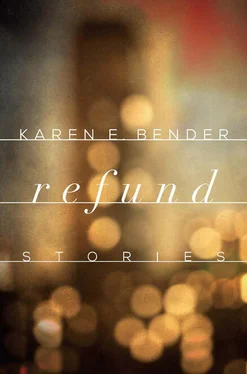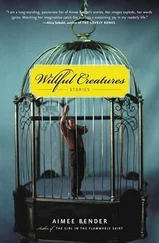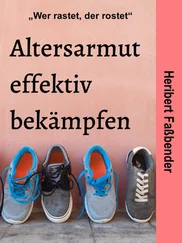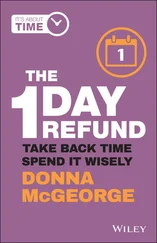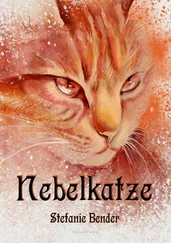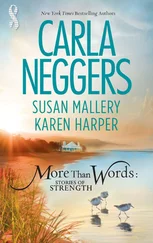“Hey,” I said. “We just wanted to take a look. Can we come in?”
The woman stared at us. “We’re about to close,” she said.
“Just for a second. My student really wants to. Just for a sec.”
I was speaking a little too quickly. We had to get in. The woman looked at us, and I wondered what she saw.
THE HOSPITAL WAS A SINGLE ROOM THAT HELD ABOUT TEN ENORMOUS bathtubs. I stuffed a couple dollars into a box marked Donations and walked toward the tubs. They were about the size of Jacuzzis and were surrounded by walls that were four feet high. The room had a dour, greenish, marine odor. Keisha held her shirt over her nose. There was a low roar of a water filter in the corner.
“Come meet our patients,” said the woman, who wore a name tag that said Melissa . Keisha stepped onto a stool beside a bathtub and peered into it. She let out a wispy, astonished breath; there was a turtle, the size of a carry-on suitcase, floating very calmly in about three feet of water.
“This is Holly,” Melissa said. “She was hit by a propeller, and it opened her shell. You can see the marks where it happened.”
There was a big chart marked PATIENTS on the wall. It featured a list of unlikely turtle names, such as Bing, Snow, Honey, Maxine, Warren, Spike, Hugh, and others, and a list describing an illness or injury— fracture, carapace; cold, stunned; viral; hook, entanglement . The last column described the outcomes: Released or Died .
“How do you treat them?” I asked.
“Each one is different,” said Melissa. “We get here by 7:00 AM and get the food ready for each turtle. Some of them are sort of picky. We have to scoop the tanks a lot and clean and wash towels. Each one has special needs—”
I watched Keisha. She was both intrigued by the turtles and maybe a little disappointed in them. Depending on the angles and the shapes of their beaks, they all looked eager or philosophical or disapproving. Snow peered at us, with his small, almost eagle-like head, and shrugged his shoulders, the wrinkled shoulders of an old man. There was Bing, who had a hook stuck in his ear; there was Maxine, who had run into a fishing boat and seemed perpetually shocked, staring at us with her unblinking black eyes.
“Our goal is to release them back to the sea,” said Melissa, and she showed us a poster containing photos of energetic people cradling the enormous turtles and gently placing them in the tide. One photo, titled “Local Humans,” showed a group of volunteers cheering as a turtle made its way to sea.
“It’s the greatest feeling,” said Melissa. “You know? When you know it’s where it needs to be, when it pushes the water with its flippers. .”
I admit, I was jealous of those turtles, of the care the volunteers took, of the force and purity of the love shown by the “Local Humans.” Keisha gazed at Melissa with interest, the way children do when adults speak with great enthusiasm about something; it was as though the girl was trying to interpret what the woman was really saying about the world.
“Can I touch Snow?” she asked.
“He’s a little grouchy. How about Hugh?” said Melissa. She walked us to the largest tank, where a turtle swam around. He seemed to be in a hurry, but he kept bumping into the sides, turning, swimming, and bumping again.
“What’s wrong with him?” I asked.
“Hugh,” said Melissa, and she stopped for a moment. She looked as though she were about to cry. “Hugh’s in good health, but he’s blind. He was caught in a fishing net, and a fisherman banged him on the head so hard he can’t see.”
“Oh, no,” I said.
“He’s good-natured,” said Melissa. She snapped her fingers against the tub. “Hugh,” she said. The turtle turned and swam in the direction of her voice.
“So how long will he be here?” I asked.
“Turtles can live over a hundred years,” she said. “He’ll outlive us all.”
I could not breathe for a moment after that statement. “Really?” I asked. “He could live for a hundred years?”
“I don’t know who will take care of him. We can’t just let him out again if he can’t see. He’ll get eaten.” Melissa paused. “This is where he needs to live for his whole life.”
We watched Hugh, who had stopped and seemed to be listening to our voices. I thought of him paddling away in the dark, bumping into the same walls over and over. The thought made my insides feel trembly, hollow.
“Can I touch him?” asked Keisha.
“Sure,” said Melissa. Keisha stood on her tiptoes and lightly touched Hugh’s shell. I reached over and put a hand on his shell, too. It was wet and slick and very hard, a shell that appeared to offer great protection. I thought Keisha would think it was unpleasant, but she stroked his shell very sweetly, and Hugh, amazingly, held still.
“He’s quite sociable,” said Melissa.
Keisha lifted her hand, and Melissa squirted hand sanitizer on it.
Keisha stared at me. “This wasn’t in the book,” she said. “Save him.”
“Me?” I asked.
“He needs a better tub!” said Keisha, her voice rising. “A bigger one. So he doesn’t bump his head!”
“Well,” said Melissa, now looking alarmed, “donations have trickled off, and with more funding—”
We looked at Hugh, who began to paddle away. It felt like he was judging us, with his rapt, wrinkled face, but he knew nothing about us except the pressure of our hands on his shell.
Keisha began to cry. “He’s so cute,” she said. She stepped back from the tub and kicked the ground, hard.
“Let’s go,” I told Keisha, using my firm teacher’s voice. I took her hand and began to lead her from the tub. She broke away from me and ran out the door into the parking lot.
“Wait!” I called, running after her.
“Is everything okay?” asked Melissa, hurrying after us.
Keisha ran from the sea turtle hospital, and she could have kept going, through the parking lot, my god, onto the road, but she didn’t; she stopped. When I reached her, she was crying, breathing hard.
I knelt in front of her. This was not what I wanted to happen. I had hoped that she could see one thing that was good.
The air was starting to cool.
“It’s okay,” I said, softly, “It’s okay—”
She took a large gulp of air, and her sobs stopped.
“Tell me,” she said.
“Tell you what?”
“Tell me what kind of tub he should get.”
I told her what kind of tub Hugh should get, and then she got back into the car, and I drove her home. We both were tired, perhaps me especially, and I gripped the steering wheel harder, with more conviction, for when I had retrieved my cell phone from the glove compartment, I found ten missed calls on it. Keisha’s aunt, her aunt, her aunt, and then her mother. It was just 4:30 PM when I pulled to the curb of Keisha’s apartment on North Ninth Street. Keisha waited for me to come around the car and grabbed my hand, put her eagle mask on again, and we started walking toward Apartment 3A. There were a lot of cars parked in the lot outside her apartment, including one police car. I didn’t feel like I was vanishing then; I was aware of every cell of my body — my hands, my face, my legs — every part both sacred and sad. My heart banged away in my chest, and my throat was turning to ice. A door to 3A opened, and a young woman burst out. “Keisha!” she exclaimed. A large group of people gathered at the door — there was her mother, off early, in her blue hospital scrubs, raising a Kleenex to wipe sweat off her face, and there was her aunt, leaning on a crutch — all of them staring at me.
I remembered what I had told Keisha when we were standing in the parking lot of the sea turtle hospital. The type of tub I wanted to build for Hugh would be big, a mile long even, with slides and curving parts in certain places to make it fun. It would have special pools with rocks so that Hugh could imagine he was in a tide pool. Maybe there could be other nice turtles in there that would be his friends. Slowly, Keisha had stopped crying. Maybe, she had said, a smart doctor might invent special drops that could cure his blindness and then Hugh could paddle out to sea. Maybe, I had said, we would all gather at the shore and watch him swim out, and he would take in the sea with his perfect new vision, he would remember how to swim, and he would feel the buoyancy of the waves under his fins as he floated into the deep blue water. Floating, she had said. He would like that. Floating, I had said. He would swim, strong, into the waves; he would swim and swim into the sunlit water. She had nodded. The sky above us had seemed weighted, holding back something invisible and enormous. I had knelt in the crumbling asphalt while her small hands gripped mine, and I had waited for her to tell me the next thing.
Читать дальше
